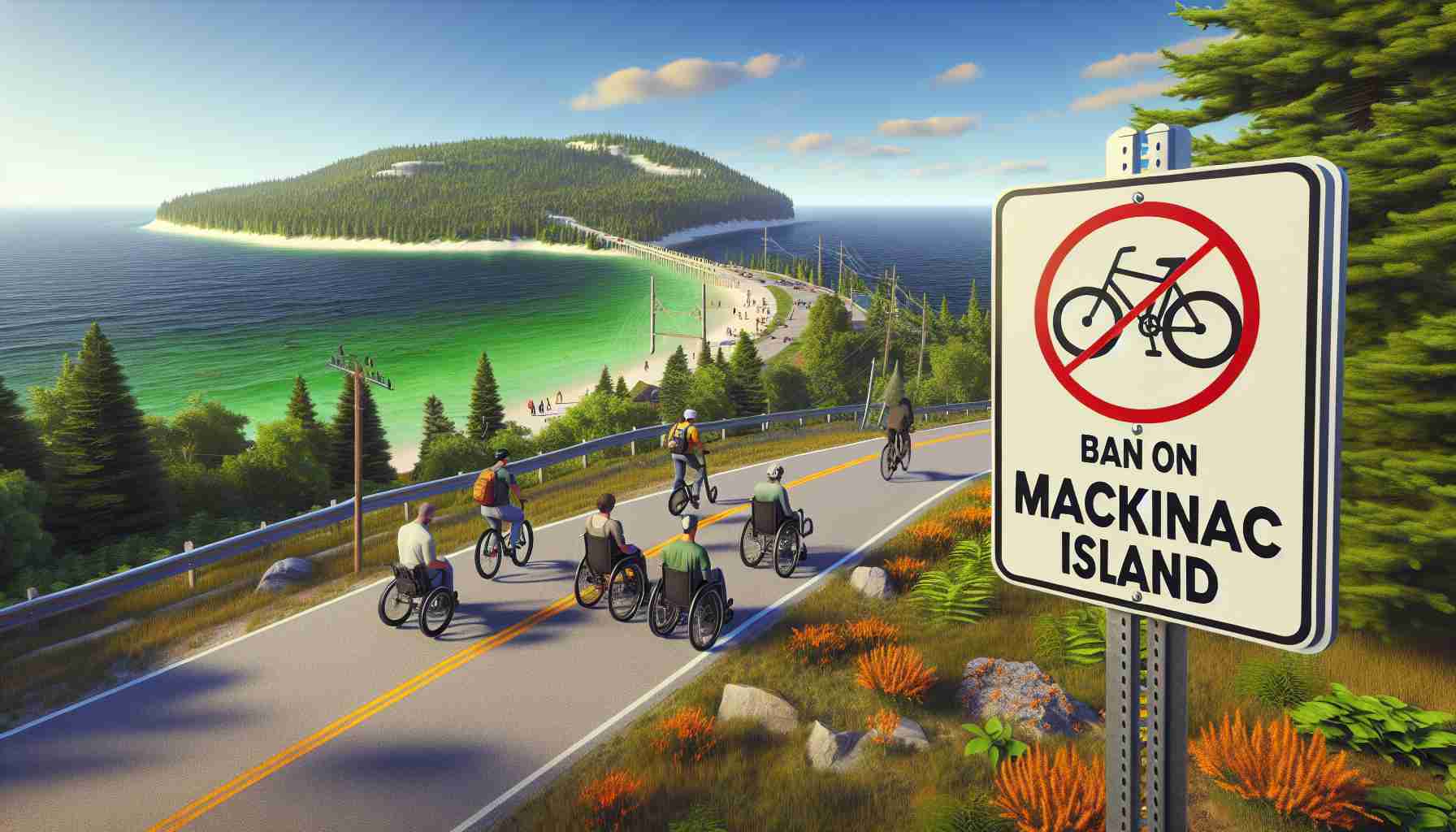Mackinac Island, renowned for its bicycle-friendly atmosphere, has faced criticism for its ban on e-bikes. Although the island permits the use of Class 1 e-bikes for individuals with disabilities, Class 2 e-bikes remain prohibited. This restriction has irked Beth Hudson, an active amputee cyclist who relies on a Class 2 trike due to her physical limitations.
Hudson’s attempts to obtain an exception for her Class 2 rig were denied by local authorities, leaving her frustrated and determined to fight for the rights of disabled individuals to access public amenities. In her pursuit of a reasonable accommodation, Hudson sent a formal request to the City of Mackinac, and if met with an unfavorable response, she plans to involve state courts.
The dispute revolves around the functionality of Class 2 e-bikes, which have a throttle for added power when necessary. Hudson argues that Class 2 e-bikes do not disrupt the island’s tranquil environment, as they operate silently and adhere to a maximum speed of 20 mph. Comparing them to gas-powered motorcycles, as suggested by the town lawyer, seems unfounded and exaggerated.
Despite being an advocate for amputees, Hudson has never had to resort to litigation for reasonable accommodations. Her experience at Mackinac Island prompted her to challenge the rigid e-bike ban, citing the Americans with Disabilities Act, Michigan’s Persons with Disabilities Civil Rights Act, and a precedent-setting court ruling against the City of Mackinac.
While some locals on the island support the ban and continue to ride Class 2 e-bikes discreetly, many are dissatisfied with the current ordinance. Hudson’s appeal to the citizens of Mackinac Island seeks a reconsideration of the ban or, at the very least, reasonable exceptions for disabled individuals.
Interestingly, other recreational areas with similar car-free environments, such as Catalina Island in California and Tangier Island in Virginia, permit both Class 1 and Class 2 e-bikes without restrictions. This raises questions about the justification behind Mackinac Island’s stringent e-bike policy.
As the controversy unfolds, the debate surrounding e-bike accessibility for individuals with disabilities sheds light on the importance of balancing environmental concerns with inclusivity. The outcome of Hudson’s efforts may have far-reaching implications, not just for Mackinac Island, but for other destinations grappling with similar accessibility issues.
The controversy surrounding Mackinac Island’s ban on e-bikes has drawn attention to the broader industry and market forecasts related to these electric bicycles. E-bikes have gained popularity in recent years, with significant growth expected in the coming years.
The global e-bike market is projected to witness a compound annual growth rate of over 7% from 2021 to 2027. Factors such as increasing urbanization, a growing preference for eco-friendly transportation options, and advancements in e-bike technology are driving this market expansion.
The demand for e-bikes is not limited to traditional bicycles. The market also includes various types of e-bikes, such as mountain e-bikes, road e-bikes, and foldable e-bikes, catering to different consumer preferences and needs.
However, despite the market potential, e-bikes continue to face challenges, including regulatory issues and public perception. The case of Mackinac Island exemplifies the ongoing debates surrounding e-bike regulations, particularly in environmentally sensitive areas.
Critics argue that e-bikes could disrupt the tranquility of natural and car-free environments. Concerns over speed, noise, and the potential for increased traffic have led some jurisdictions to restrict the use of certain types of e-bikes.
These debates highlight the need for a balance between environmental preservation and accessibility for disabled individuals. While Mackinac Island maintains its ban on Class 2 e-bikes, other similar destinations, such as Catalina Island in California and Tangier Island in Virginia, have taken a more inclusive approach, allowing both Class 1 and Class 2 e-bikes without restrictions.
As the e-bike industry continues to grow, issues such as accessibility for disabled individuals and the establishment of consistent regulations across different regions will likely remain important topics of discussion. The outcome of Beth Hudson’s efforts to challenge the ban on Mackinac Island could set a precedent for other destinations facing similar accessibility issues.
For more information on the e-bike industry and related topics, you can visit reputable sources such as E-Bike Tips or Electric Bike Report. These websites provide valuable insights, market forecasts, and news updates on the e-bike industry.







